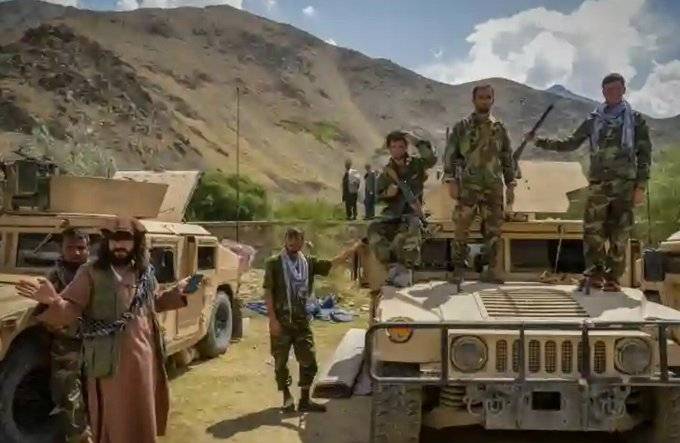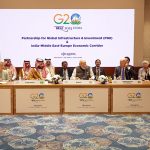They claim they are the only country in the world to have defeated (sic) two Superpowers (with their duplicity) – the erstwhile Soviet Union which they dismembered and now the mighty USA…reports Asian Lite News.
Afghanistan has been justifiably in the news and in the front and centre of every public discourse. The hasty withdrawal of the US troops and their associated contractors had led to the Afghan Army being crippled and capitulating. The Taliban is back in Kabul at the centre of power.
As stated by a noted security expert, “I have no view on the situation in Afghanistan, only dark thoughts”.
Much water has to flow down the River Kabul, and one hopes it is water and not blood, and much will be written about the situation there and its impact on the comity of nations.
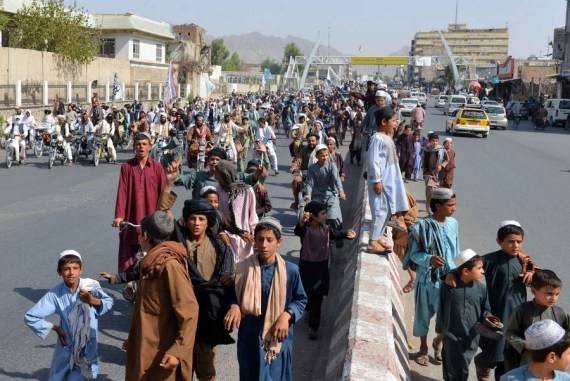
But how is the extant situation in the Afghanistan-Pakistan region actually a boon for India’s future security imperatives is a matter to be looked at.
What does the future foretell for Indian security? The Pakistanis have their tails up! And from their perspective – justifiably so!
They claim they are the only country in the world to have defeated (sic) two Superpowers (with their duplicity) – the erstwhile Soviet Union which they dismembered and now the mighty USA.
That they were double dealing the USA and giving sanctuary to the Taliban was well known. Despite that, the US chose to gift billions of dollars in Coalition Support Funds (CSF) implies that they succeeded and pulled the wool over the eyes of the best intelligence gathering machine in the world.
The “Art of the Deal” could actually have been better written in Rawalpindi.
History also shows us that this facile victory for the Pakistan deep state will lead to pushing in a new wave of Afghan and other myriad terrorists from the Afghan hinterland into the Vale of Kashmir prior to closing of the passes, and an increase in the trade of illegal drugs on the Arabian Sea’s “Hash Highway” with the complicity of the Pak intelligence agency – the ISI.
However, the Pakistanis would also suffer economically. The heavy influx of Afghan refugees may stress the collapsing Pak economy and would certainly tie up Pakistan in greater internal strife.
And what about big brother China?
The attempt to change the status-quo along the border in the Ladakh region in mid-2020, was stymied by a swift retaliatory response by Indian forces on land and in a different manner which included an aggressive deployment of the Indian Navy’s ships across and beyond the Indian Ocean.
Such a swift reaction on land was probably not envisaged by the PLA. However, the strategic impact was provided by the deployment of Indian naval forces in the maritime domain and that certainly did surprise the PLA (Navy).
These lines-of-effort have led to the first stage of de-escalation by both sides, but the PLA is still present where it should not be – probably looking for opportunities. The different deployment pattern adopted by the Indian Navy continues till date with a large force of four warships still deployed in the South China Sea and the western Pacific Ocean exercising with the littorals and with the Quad nations concurrently.
While looking at India and its security establishment from the outside, it is quite easy to see the continental focus of the Indian strategic thinkers. Hence, it was quite a surprise to see the Indian Prime Minister chair a session of the UN Security Council on Maritime Security. Is there a shift therefore to the seas?
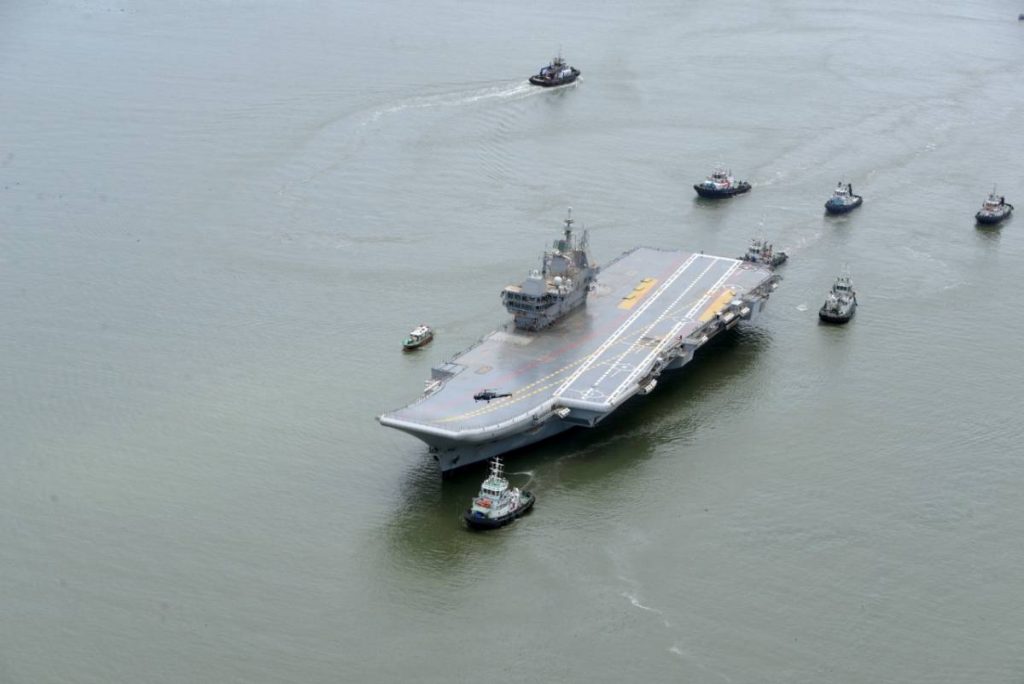
Indian journalist Shekhar Gupta has correctly highlighted the historical mistake by Indian policy makers of ignoring the seas. He states, “Our strategic thought, therefore, became land-border-oriented. We constantly thought Pakistan, terrorism, China and became reactive and defensive.… For 75 years, India’s strategic thinking has been so distracted by a threat that it had no time for our opportunity.” (highlights by this author). Mr Gupta succinctly concludes, “the latest turn in Afghanistan’s history has changed the dominance of geography in our region. If only we in India would leave our Pakistan obsession aside, even forget Afghanistan for now, focus on our maritime power and opportunity rather than overland threats. This is India’s greatest opportunity in 75 years to shift its strategic gaze from the north to the south.” The situation in Afghanistan actually, therefore, allows India to now focus on what it should have done decades ago – matters maritime.
The relevance of the Indian Ocean to India’s security needs no recounting but, quoting Alfred Thayer Mahan, helps place the correct perspective, “whoever controls the Indian Ocean, dominates Asia. This ocean is the key to the seven seas. In the Twenty First century, the destiny of the world will be decided on its waters”.
In the current security scenario summed up by the Indian Chief of Naval Staff, “We are transitioning to a period of busy peace, where the binaries of peace and conflict are becoming less relevant…..actors using diverse playbook of actions and counter-actions within this continuum on a day-to-day basis, whilst mostly remaining below the threshold of conflict”. Admiral Karam Bir presciently added, “Indo-Pacific also offers us the opportunity to break the mould of a land-centric, border-focussed nation that hitherto has been our dominant approach.
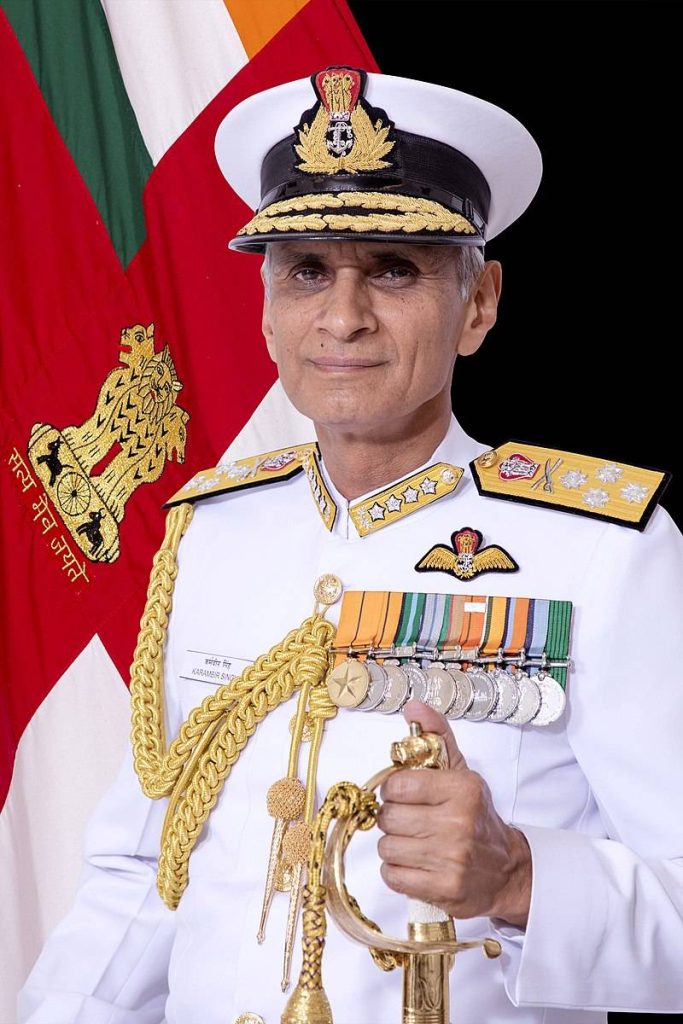
Admiral Karambir Singh
This border-focussed approach limits us from truly harnessing our fullest potential, of expanding our geostrategic gaze and influence into the wider globe. The waters of the Indo-Pacific offer such opportunity, to move outwards and seek India’s rightful place in global affairs.”
In this milieu, it appears that the situation in Afghanistan may actually free India from the shackles of history. It may also provide India a chance to leverage its geography – especially its maritime geography. It would be foolish for Indian policy makers to look the gift horse in the mouth. It is time to deal with incidents of terror in the Kashmir valley and discard the Pakistani obsession for it remains at the tactical level and has no strategic relevance. It is time to tack to the Blue Waters of the only ocean named for a country – The Indian Ocean. The Indian security establishment must focus on maritime power which, in turn, will ensure the growth of the blue economy and safeguard the future of India.
ALSO READ-UN seeks India’s wheat for starving Afghanistan
READ MORE-Hunger grips millions in Afghanistan

